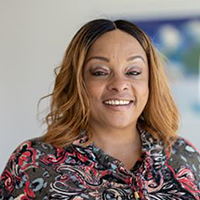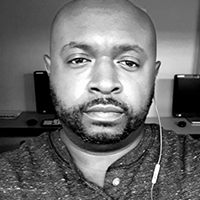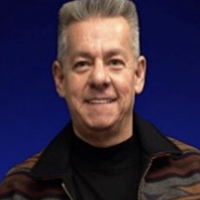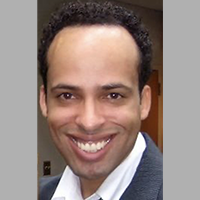We are honored to present a 4-part virtual learning series as a collaboration between the Central East PTTC, Central East ATTC, National American Indian & Alaska Natives PTTC, and the National Hispanic and Latino PTTC.
Together, we will connect you with subject matter experts from various diverse cultural backgrounds. This will provide a perspective of what LGBTQIA2S+ BIPOC individuals would like Prevention Professionals to know when serving the population.
We will start by interpreting acronyms associated with LGBTQIA2S+ communities:
LGTBQIA2S+ is an acronym for Lesbian, Gay, Bisexual, Transgender, Queer and/or Questioning, Intersex, Asexual, Two-Spirit, and countless affirmative ways in which people choose to self-identify.
BIPOC refers to Black, Indigenous, and people of color. People of color is an umbrella term generalized to all people who aren’t white.
Please join us for a roundtable discussion. Participants will have an opportunity to learn from subject matter experts, as well individuals whom identify as BIPOC and/or LGBTQIA2S+. Cultural aspects and specifics of each culture represented in the series will be discussed, as well as what historical data are behind the challenges faced by each group.
Participants will also learn about the specific risk and protective factors, difficulties the communities are experiencing with current Behavioral Health Systems, how to enhance the strengths of each system to increase engagement and retention, as well as many other critical topics.
By the end of the series, participants will leave with knowledge and tangible actions to help make a difference, as an important part of our role as prevention professionals. What can we do to educate ourselves and serve the population better and with respect and humility?
Series Overall Learning Objectives
 Anna Mable-Jones CPRS, NCPRSS
Anna Mable-Jones CPRS, NCPRSS
Anna Mable-Jones CPRS, NCPRSS Anna Mable-Jones CPRS, NCPRSS is an Oxford House Resource Coordinator in DC and Maryland, a nonprofit network of 2,684 (internationally) self-help recovery homes. She assisted in opening 43 DC/MD Oxford Houses. She is a woman in long-term recovery who has been in recovery since 1999 and has worked with Oxford House, Inc. since 2000, recipient of the 2005 Oxford House Founders Award. Anna is a true ambassador for women in recovery. She radiates the power of recovery and transformation every day. Anna is a trainer in Wellness Recovery Action Plan Facilitator and CCAR Recovery Coaching Trainer. Anna is in here 4th year training to become a Core Energetics Practitioner. She has had many opportunities to work with community organizations and leaders to promote the societal benefits of prevention, treatment and recovery for substance abuse and mental illness. One of Anna’s passions in life is to be a continuous educator of hope and persistence and shares her experiences freely. Along with devoting her spirited knowledge to Oxford House, she has also created a successful 12-Step bible study called Life Recovery at her local church. Anna is also a Reiki Master Teacher and a founding member of District of Columbia Recovery Community Alliance (DCRCA) a Peer Operated Center.
 Demetrie Garner
Demetrie Garner
Demetrie Garner is a Peer Recovery Specialist at the Emergency Department. This has given him the vantage point to encounter minority disparities. A lack of health communication targeted to African-Americans, and other minorities help further this disparity. As a Peer Recovery Specialist, the visible cracks of systemic inadequacies in health care and its access garners attention and policy changes in patients with substance use disorders. The experience in active addiction abusing opiates, cocaine, and alcohol for 26 years with countless relapses fostered the expertise needed to help others in active addiction. Finding recovery over the last 2 and 1/2 years while working in the recovery field has given Demetrie a unique perspective on recidivism and retention throughout the process of recovery. With the help of the God of his understanding (Jesus Christ), Narcotics Anonymous, and healthy relationships, the pathway of a daily reprieve from active addiction is now possible. Continuous work through pastoral licensed counseling has unlocked the acceptance of childhood molestation and recovery from trauma. Demetrie is currently a Pre-McNair Scholar with ambitions to attend the UMBC School of Public Policy M.P.P Program in spring of 2022 after obtaining his Bachelor’s degree in Public Health.
 Gary Neumann
Gary Neumann
Gary Neumann has over 33 years’ experience in the field of prevention and human resource development. He has worked successfully with a variety of tribal, state and federal agencies in the area of program design, implementation and evaluation focusing on at-risk youth, their families and communities. Currently, he works for Tribal Tech as a TTA Coordinator and serves as a task lead for training SAMHSA staff. He has developed a series of newsletters – Spirit-Honor-Inclusion with a focus on Two Spirit issues. Mr. Neumann previously served as the Project Manager of the Rocky Mountain Tribal Access to Recovery III program. He also served as the Training and Technical Assistance Director of the Native American Center for Excellence, NACE, a national resource center for Native American substance abuse prevention providing culturally centered training, technical assistance, and information resource services to a variety of Native and non-Native audiences throughout the United States. His work experience includes extensive knowledge of the Affordable Care Act (ACA), Tribal Law and Order Act (TLOA) and how it applies to American Indians and Alaska Natives, having developed and conducted ACA trainings for Montana/Wyoming Tribes. Mr. Neumann is skilled in assessment, capacity building, prevention specialist certification, marketing, grant writing, methamphetamine prevention, youth violence, bullying and suicide prevention, and sustainability. Mr. Neumann has developed several culturally appropriate training curriculums, community-based organizing modules and presented and trained at many national and international conferences throughout the United States, Alaska and Canada. Mr. Neumann is an enrolled member of the Confederated Salish & Kootenai Tribes of the Flathead Indian Nation and identifies as Two Spirit.
The Future Looks Bright: We are truly blessed to be living in a time when we can openly have webinars and conversations with our Two Spirit and LGBTQ brothers and sisters. I was in West Hollywood when the first Pride celebration occurred, and I remember a lot happening since then. The road to get here was long, hard, painful, and often lonely. Sometimes we had to claw tooth and nail through a society that did not care whether we lived or died and indeed did not care when our friends were dying. When I was 28, I was not going to gay marriage ceremonies, I was going to funerals. This new world was won by other LGBTQTS brothers and sisters who are living in our golden years. I believe those working in this field today were prayed into these roles by those ancestors who went before. I am proud that you are taking such care of our community. I am proud and honored to be here and the Future Looks Bright. Gary B. Neumann, “Red Cloud”, Salish, Pend O’rielle – Member of the Confederated Salish and Kootenai Tribes
 Dr. Hector Y. Adames
Dr. Hector Y. Adames
Dr. Hector Y. Adames received his doctorate in Clinical Psychology from the APA accredited program at Wright State University in Ohio and completed his APA pre-doctoral internship at the Boston University School of Medicine’s Center for Multicultural Training in Psychology (CMTP). Currently, he is a Full Professor at The Chicago School of Professional Psychology, Chicago Campus. He co-founded and co-directs the IC-RACE Lab (Immigration Critical Race And Cultural Equity Lab). Dr. Adames has published several books, including (1) Cultural Foundations and Interventions in Latinx Mental Health: History, Theory and within Group Differences published by Routledge Press, (2) Caring for Latinxs with Dementia in a Globalized world published by Springer, and (3) Ethics in Psychotherapy and Counseling: A Practical Guide. His research focuses on how socio-race, skin color, colorism, ethnic and racial group membership influence wellness. He has earned several awards, including the 2018 Distinguished Emerging Professional Research Award from The Society for the Psychological Study of Culture, Ethnicity, and Race, a Division of the American Psychological Association (APA).